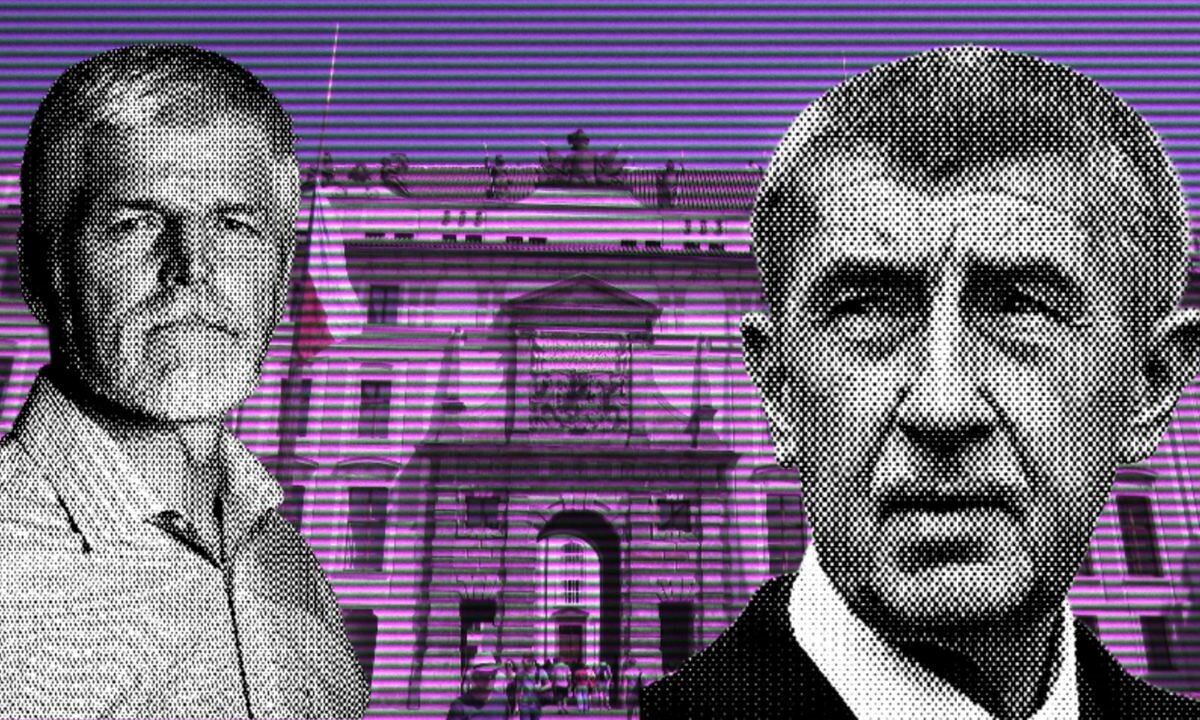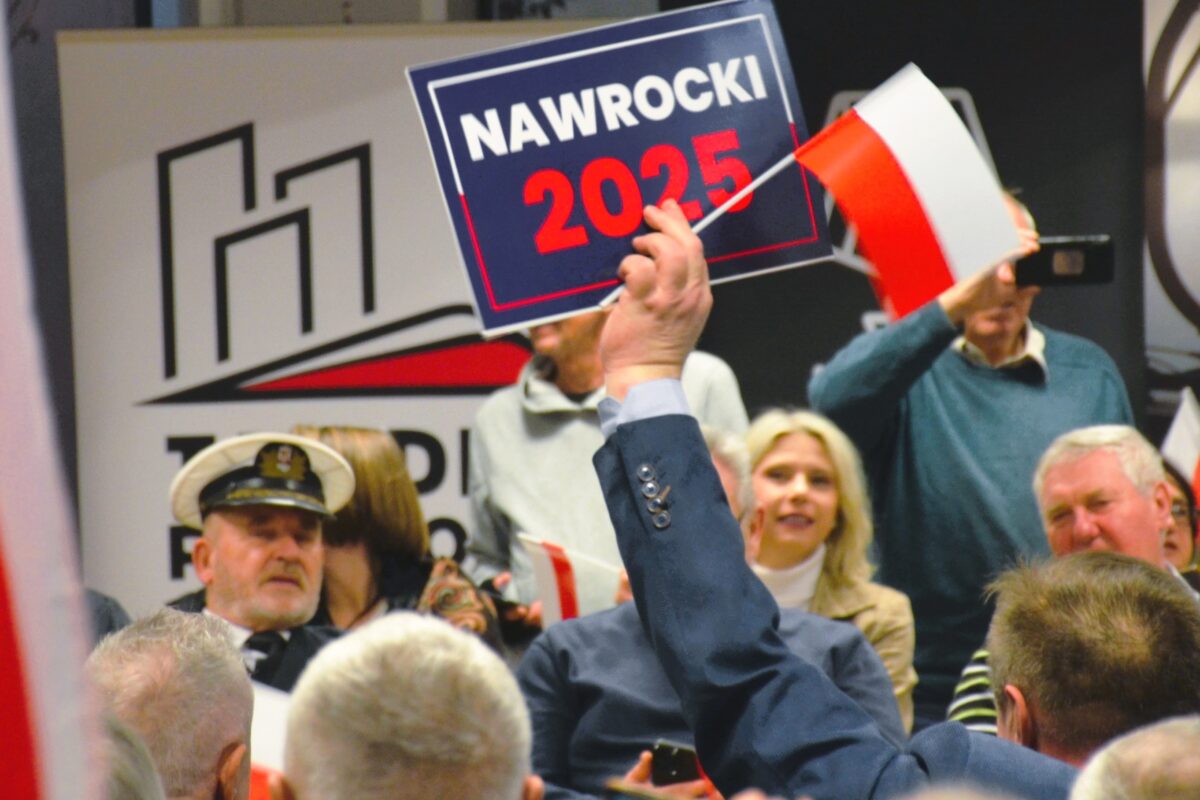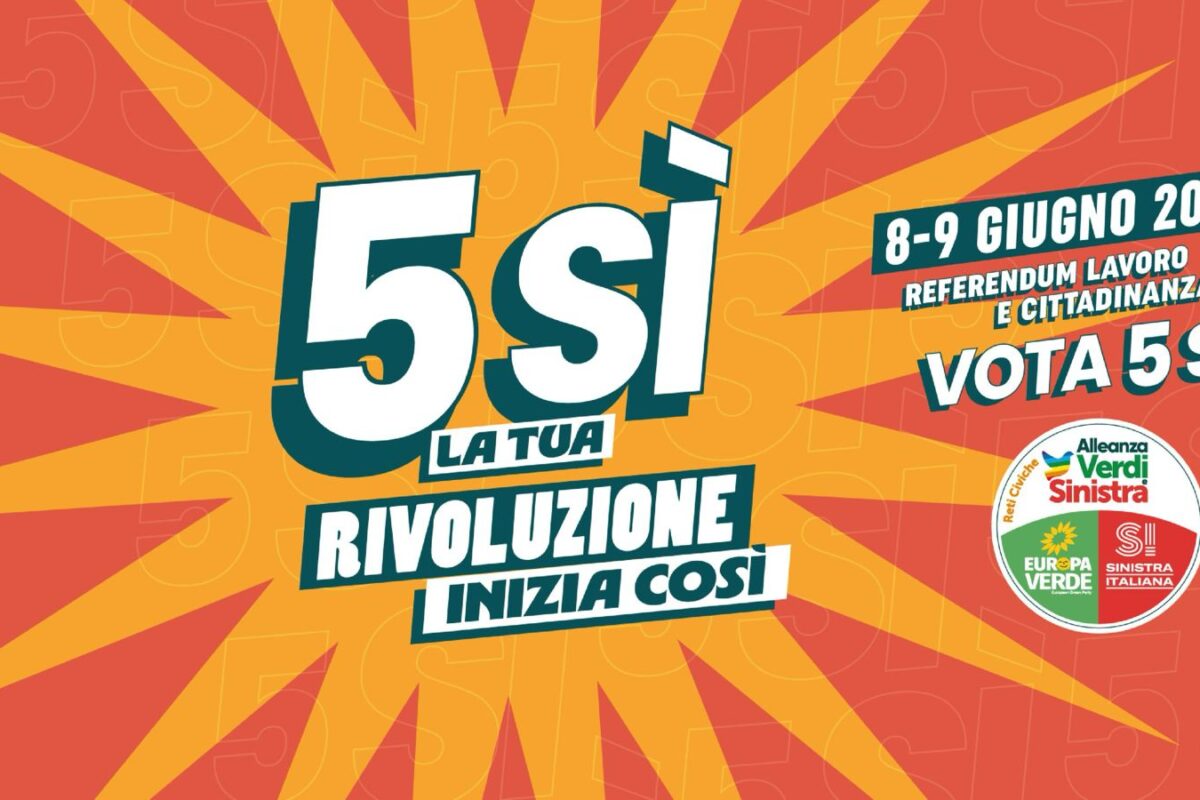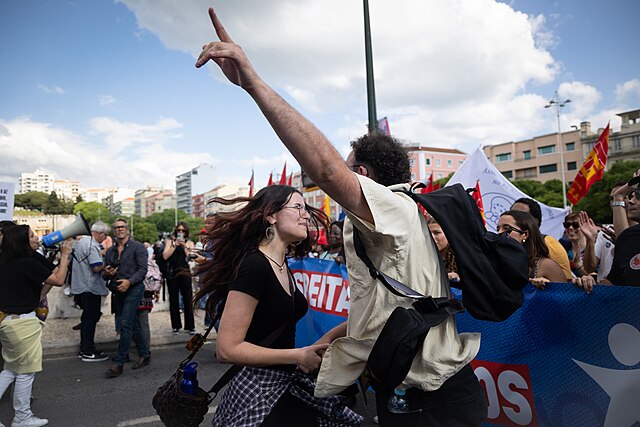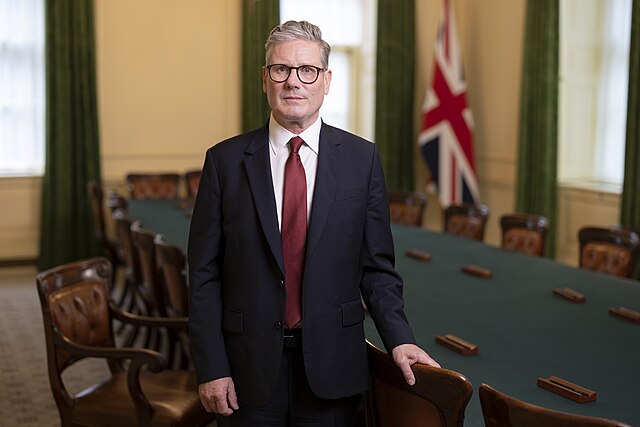Members of the Politburo once asked Stalin which communist deviation was worse, the right-wing one represented by Bukharin or the left-wing one led by Trotsky. Stalin immediately replied: “both are worse – each in their own way.” Surprisingly, this classic Soviet joke also applies to our choices in the current Czech presidential election. Which of the two finalists is worse? Both. Each in their own way.
On January 14th, former prime minister and billionaire Andrej Babiš and former NATO military chairman Petr Pavel advanced to the second round. In the foreign press, the role of the Czech president is often described as purely ceremonial. Of course, Czechia has a parliamentary regime, and presidential powers are primarily representative, but historically the president has always enjoyed a great deal of informal influence. This includes the ability to raise policy issues and shape the nature of political debate in Czechia.
Contender 1: Petr Pavel – the General
The first round of the election was narrowly won by Petr Pavel, who garnered 35.40% of the vote. His campaign was backed by a long list of Czech capitalists. He was financially supported by Martin Hájek, the 21st richest Czech according to Forbes magazine, Dalibor Dědek, the 59th richest, and Ondřej Fryc, the 91st. Their generous donations to Pavel’s campaign had a hidden purpose. It doesn’t hurt to have a man in the Czech presidential palace who owes you a favor.
Pavel, known among his supporters simply as “the General,” built his campaign on the slogan “Let’s Return Order and Peace to the Czech Republic.” One cannot but describe this slogan as fascistic – which is perhaps why so many capitalists support it. But what is Pavel’s idea of order anyway? It is hard to say, since the General’s ideological development has shifted throughout his life. Although his campaign marketing experts try to portray him as a champion of the mythical Western values of which the Czech bourgeoisie speaks so fondly, this was not always the case. In 1983 Pavel joined the Communist Party. Just before the fall of the proto-socialist regime he was trained as a military intelligence agent. His political testimony survives in archives, where his thorough knowledge of Marxism-Leninism is documented.
For years, the Czech bourgeoisie portrayed members of the Communist Party as being morally decrepit at best and criminal at worst. Now “their” candidate is a former career Communist – something Pavel shares with his opponent. Andrej Babiš was also a Communist Party member and, according to archival material, actively cooperated with the secret police (he vehemently denies any cooperation himself).
This will be the first time in the existence of the independent Czech Republic that the president will not be a militant who actively participated in the Velvet Revolution, which ended the proto-socialist regime in Czechoslovakia in 1989. The career Communist background of both candidates shows the utter impotence, ideological emptiness, and lack of coherent vision for the future offered by the current liberal capitalist system, which has been unable to nurture a new generation of political leaders for 30 years.
Contender 2; Andrej Babis – the “Czech Donald Trump”
Andrej Babiš won 34.99% of the vote in the first round of elections this year. Originally from Slovakia, he is the fifth richest Czech according to Forbes. Apart from the media, his business empire also includes the agricultural conglomerate Agrofert, whose subsidiaries include the Vodňanské kuře poultry farm, notorious for employing agency workers from Bulgaria and Vietnam. These workers often reside in the Czech Republic illegally and are forced to work 12- to 14-hour shifts in freezing temperatures with noise levels that exceed standards set by the Labour Code.
Babiš has described himself as the Czech Donald Trump. Like Trump, his political career has been marred by a series of scandals. Just before the first round of the presidential election, a court found him not guilty in the Čapí hnízdo farm case, where there was reasonable suspicion of misuse of EU funds. Babiš is currently under investigation in France on suspicion of money laundering and tax evasion based on findings from the Pandora Papers. However, the ongoing investigation did not prevent French President Macron from receiving Babiš on a visit just before the elections. Before that, Babiš managed to have breakfast with Bernard Arnault – currently the richest man on the planet. One can only wonder what the two billionaires discussed over coffee and croissants.
After chaotically failing to contain the pandemic (another parallel to Donald Trump) in 2021, Babiš narrowly lost the parliamentary elections when two opposition coalitions formed against him: the Spolu (Together) coalition uniting three right-wing parties and the centrist Pirates and Mayors coalition. The current government, composed of both coalitions, is a classic neoliberal government – it is planning to charge for certain health care premiums, at a time when it is difficult to provide any standard health care at all in some peripheral zones of Czechia. It is also considering raising value added tax on selected products such as medicines, which are now in short supply in the Czech Republic. It is not too surprising that of all European leaders, the Czech Prime Minister enjoys the least trust in his country.
How did we get here?
Before the presidential elections began, the ruling trio in the Spolu coalition expressed support for three different presidential candidates, one of whom was Petr Pavel. This is now Babiš’s strongest weapon in the campaign. He describes Pavel as a pro-government candidate and warns that if he were to become president, the right-wing would control all centers of power since it already has a comfortable majority in both houses of parliament. By admitting that he voted for the Spolu coalition and using right-wing arguments in his attacks against Babiš, Pavel essentially gives his opponent the benefit of the doubt.
Babiš defines himself against the right and effectively styles himself as the protector of the poor – after all, it was his government that increased pensions and salaries of state employees. Now however, due to rampant inflation, wages are falling in real terms. Given that no left-wing party has been represented in the Czech parliament since the last elections, Babiš’s posturing as a friend of the people is working well in the media. According to polls, his voters associate him with sensitivity to social conditions, despite the notoriously appalling treatment of rank-and-file employees in Babiš’s companies.
Given the unpopularity of the current government, Babiš is probably counting on the fact that his ANO movement, which he founded in 2011 as a center-right formation, could win the next parliamentary elections. If Babiš were to become president, he would probably put a non-confrontational technocrat at the head of his ANO party who would have no problem forming a government. With the presidency and government under his direct control and his vast business empire under his hand, his position of power would be unshakeable.
What we can expect
There is no need for a complex analysis to understand what the Czech presidential election really represents. It is a struggle between two feuding groups within the Czech oligarchy. On the one hand there is the business tycoon Babiš, who calculated that it would be cheaper to enter politics directly instead of influencing it from behind the scenes. On the other, there is a cohort of smaller oligarchs who fear that Babiš might gain a hegemonic position. and influence Czech politics from the shadows in a more traditional way .
Realizing that much is at stake, both are campaigning in an incredibly brutal way. The hidden problems of the Czech Republic are coming to light in these elections – disregard for poor periphery regions and latent racism are on full view. After the first round of the election, Czech Twitter, which is mostly used by the middle class, was flooded with insults against people living on the periphery who mostly voted for Babiš. The Dekomunizace (Decommunization) Association displayed a banner with a photo of Communist president Gustáv Husák – the only Slovak president in the history of Czechoslovakia – hanging behind a half-naked Babiš with a caption above both: “No more Czecho-Slovaks!” The internet is full of similar racist attacks on Babiš’s origins.
Pavel describes the election as a battle between two worlds – his, who holds the upright pro-Western views, and Babiš’s, who is dishonest and pro-Russian. Pavel is thus deliberately helping to polarize society – a polarization which even led to someone sending a bullet to Babiš’s wife in the mail. Babiš, of course, is not lagging behind in this regard. Indeed, immediately after the results were tallied he compared Pavel to Putin, saying that, like the Russian president, he was a Communist spy.
This atmosphere of heated hatred is completely unnecessary. The Czech Republic will continue to be an oligarchy. As The New York Times described with the detached insight of an outside observer, “No matter which of the top two candidates […] eventually triumphs, the departure of Mr. Zeman, the Czech president for the past decade, should put the country’s foreign relations back on an unambiguously pro-Western path.”
Conclusion
Although it is difficult to maintain an impartial position during a period of highly visible nationwide campaigning, the Czech Left should not forget that it does not have a horse in this race. We now have a great opportunity to observe the situation calmly and to analyze machinations of manipulative oligarchs in Czech society. At the same time, this election is also a warning to us. Unless we redouble our efforts and succeed in bringing the left back into Czech parliamentary politics, the next elections will be yet another clash between different shades of the right.
Translated and edited by Florent Marchais, freelance journalist and activist based in Paris, France
